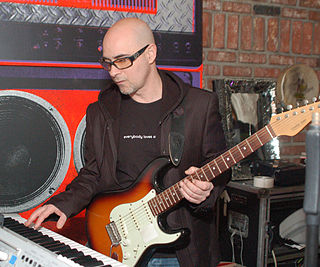A Quote by Joseph Epstein
I just know so many people who have six or seven foreign languages and have read everything and have musical training and they are still dorks.
Quote Topics
Related Quotes
Of course my books are translated into many languages. I have here, in my home, translations on my shelf of my books into forty-five different languages. Almost none of them I can read. I can read only the English editions. But, I know that a translation of a work of literature is like playing a violin concerto on the piano. You can do this. You can do this very successfully on one strict condition: never try to force the piano to produce the sounds of the violin. This will be grotesque. So, different musical instruments provide for different music.
I work in Hebrew. Hebrew is deeply inspired by other languages. Not now, for the last three thousand years, Hebrew has been penetrated and fertilized by ancient Semitic languages - by Aramaic, by Greek, by Latin, by Arabic, by Yiddish, by Latino, by German, by Russian, by English, I could go on and on. It's very much like English. The English language took in many many fertilizations, many many genes, from other languages, from foreign languages - Latin, French, Nordic languages, German, Scandinavian languages. Every language has influences and is an influence.
The benefits of becoming fluent in a foreign tongue are as underestimated as the difficulty is overestimated. Thousands of theoretical linguists will disagree, but I know from research and personal experimentation with more than a dozen languages that (1) adults can learn languages much faster than children when constant 9-5 work is removed and that (2) it is possible to become conversationally fluent in any language in six months or less. At four hours per day, six months can be whittled down to less than three months.
Now, everybody knows the basic erogenous zones. You got one, two, three, four, five, six, and seven. ... OK, now most guys will hit one, two, three and then go to seven and set up camp. ... You want to hit 'em all and you wanna mix 'em up. You gotta keep 'em on their toes. ... You could start out with a little one. A two. A one, two, three. A three. A five. A four. A three, two. Two. A two, four, six. Two, four, six. Four. Two. Two. Four, seven! Five, seven! Six, seven! Seven! Seven! Seven! Seven! Seven! Seven! Seven! Seven! Seven! [holds up seven fingers]
I'm a professor of comparative literature, among other things, so I'm able to read in a couple of other languages, and I understand that not everyone is, not everyone can, although it is quite stunning how many people do read Spanish in the United States, but moving between languages is also extremely helpful.
It was hard to become an astronaut. Not anywhere near as much physical training as people imagine, but a lot of mental training, a lot of learning. You have to learn everything there is to know about the Space Shuttle and everything you are going to be doing, and everything you need to know if something goes wrong, and then once you have learned it all, you have to practice, practice, practice, practice, practice, practice, practice until everything is second nature, so it's a very, very difficult training, and it takes years.
My mother wanted me to learn how to read music. She'd given fiddles to my two older brothers, but they'd rebelled. I came along and my father said, "Oh, let Peter enjoy himself." What she did was leave musical instruments all around the house. Whistles, marimbas, squeeze boxes, a piano and organ. By age six or seven, I could bang out a simple tune on almost anything. I developed a good ear, so I didn't learn to read music until I taught myself at age eighteen, 'cause I was hearing so many good songs I couldn't possibly remember them all.



































